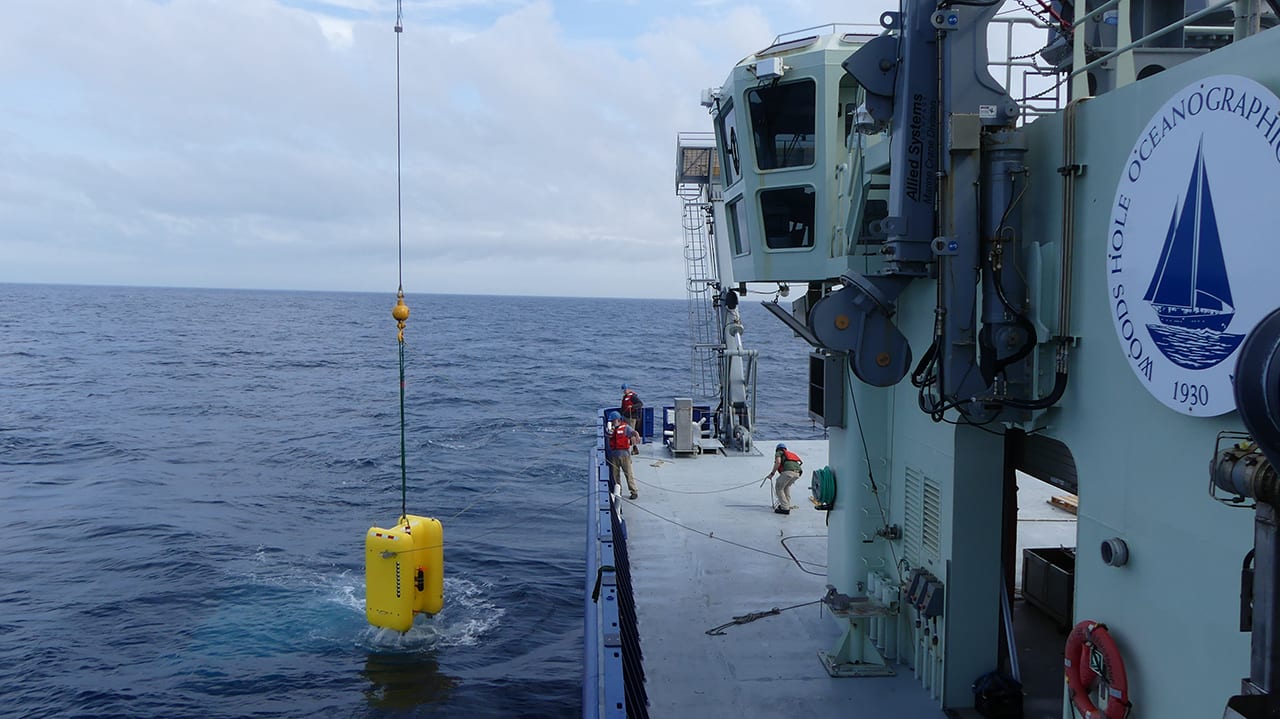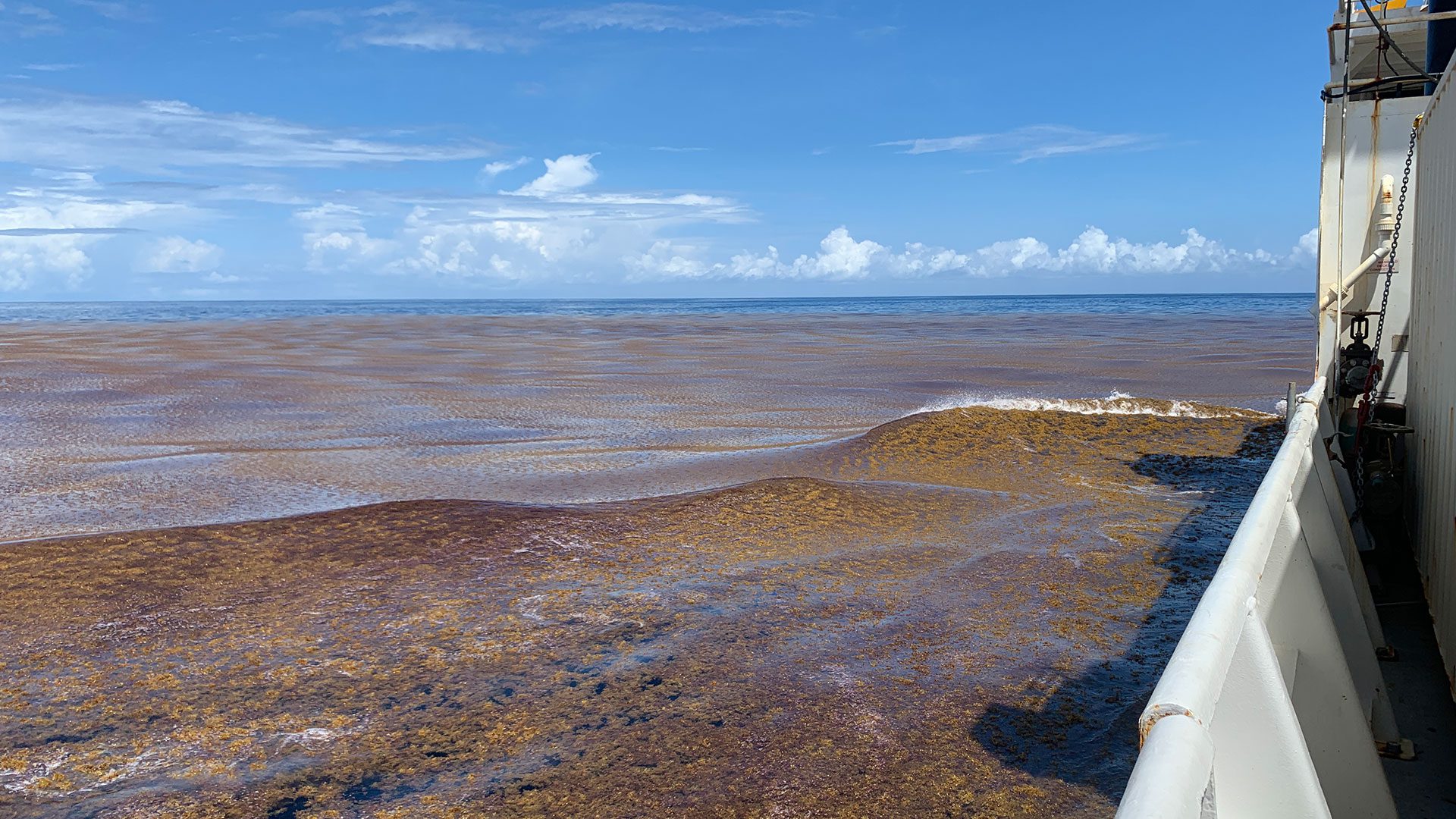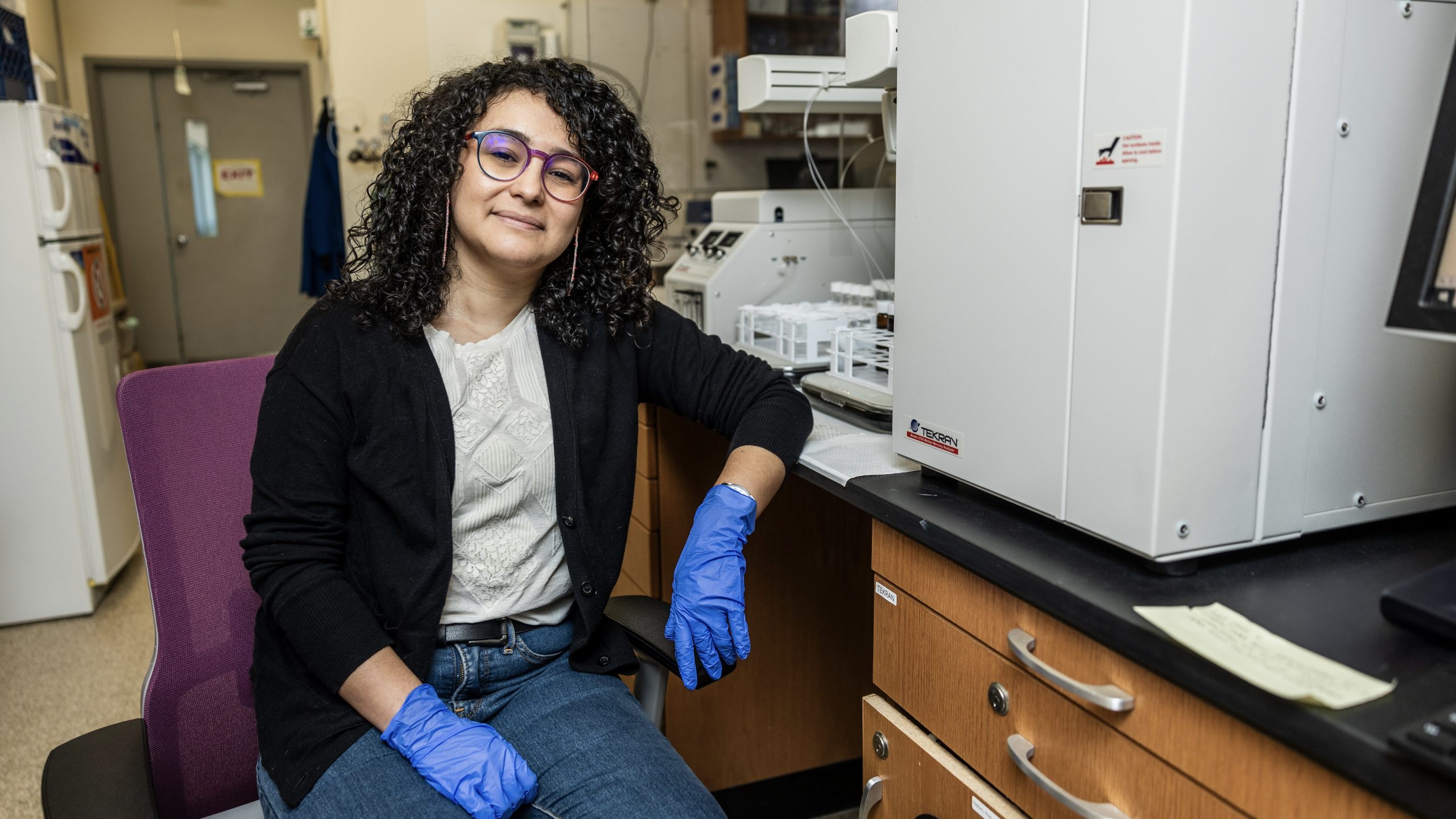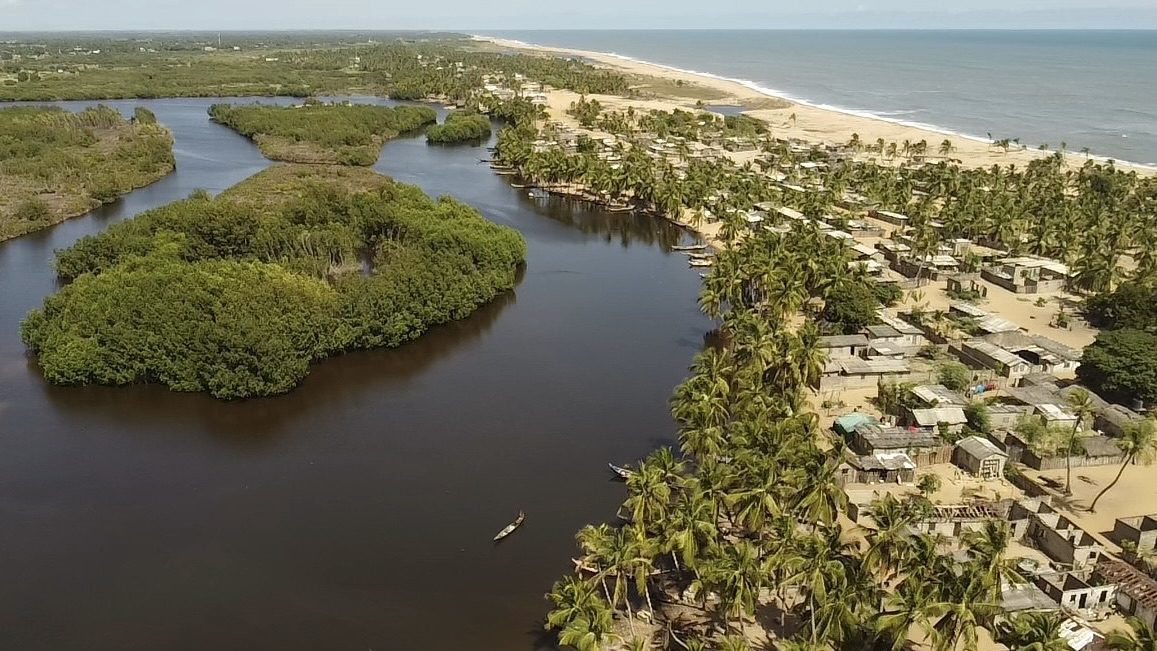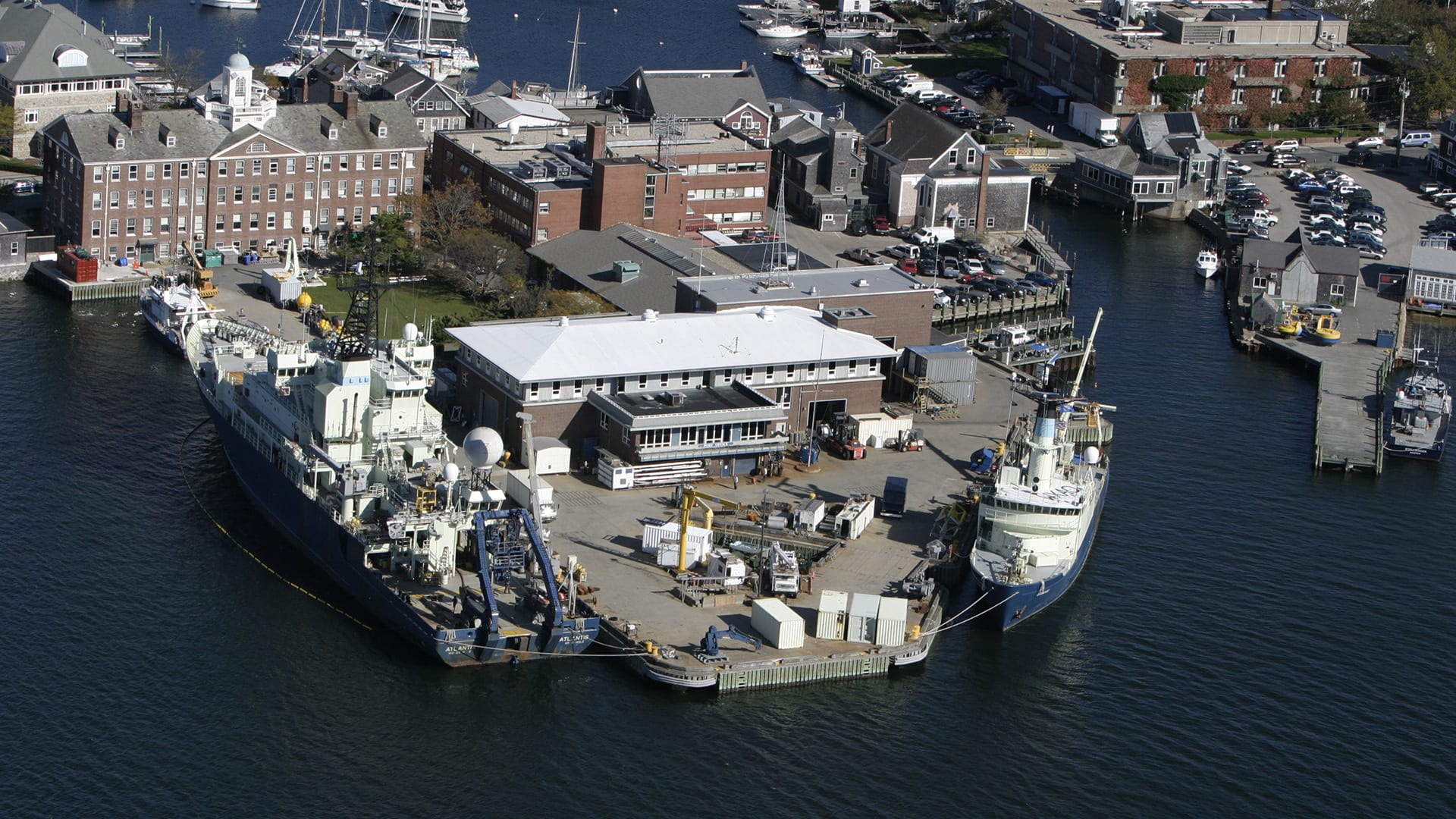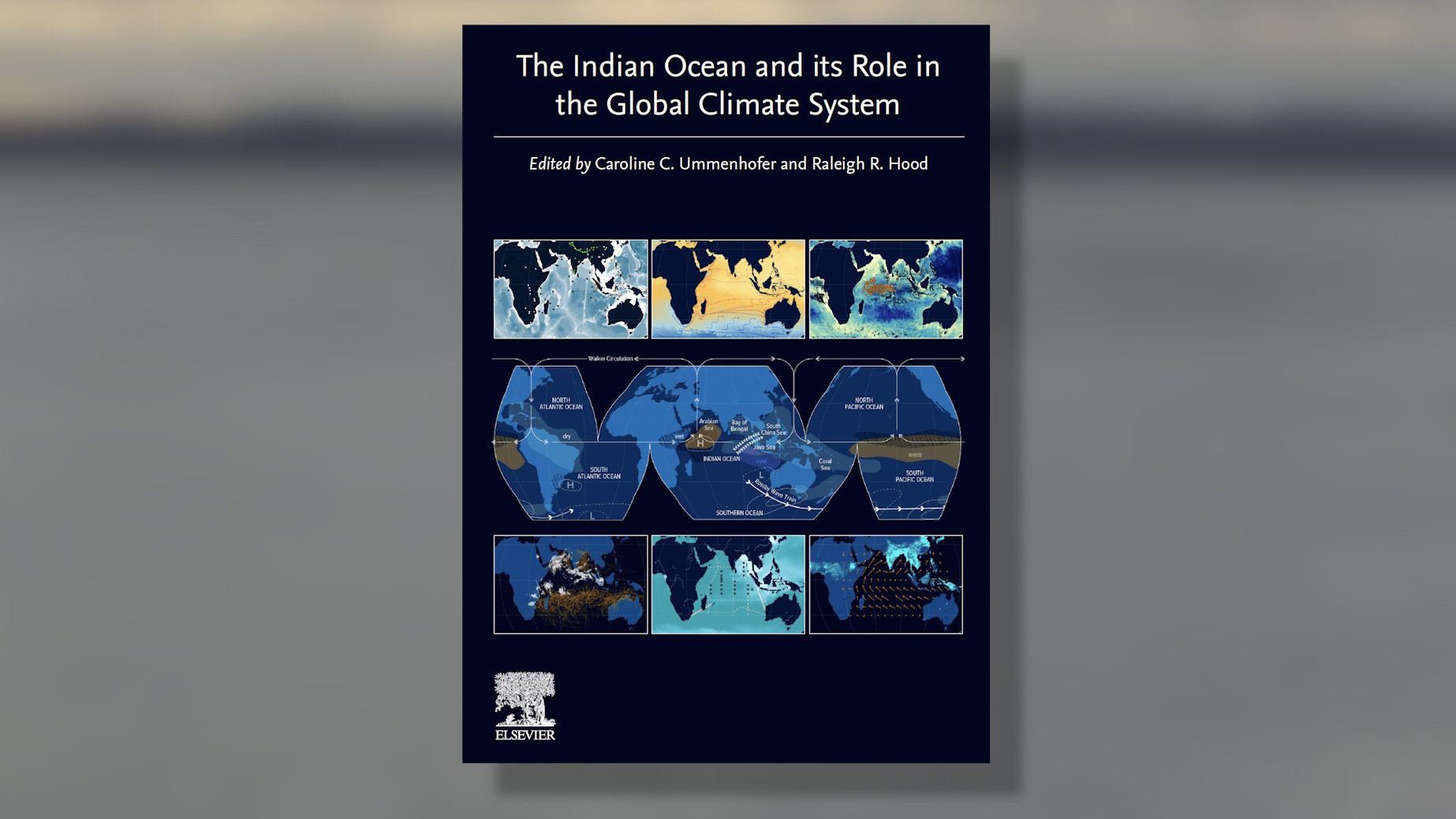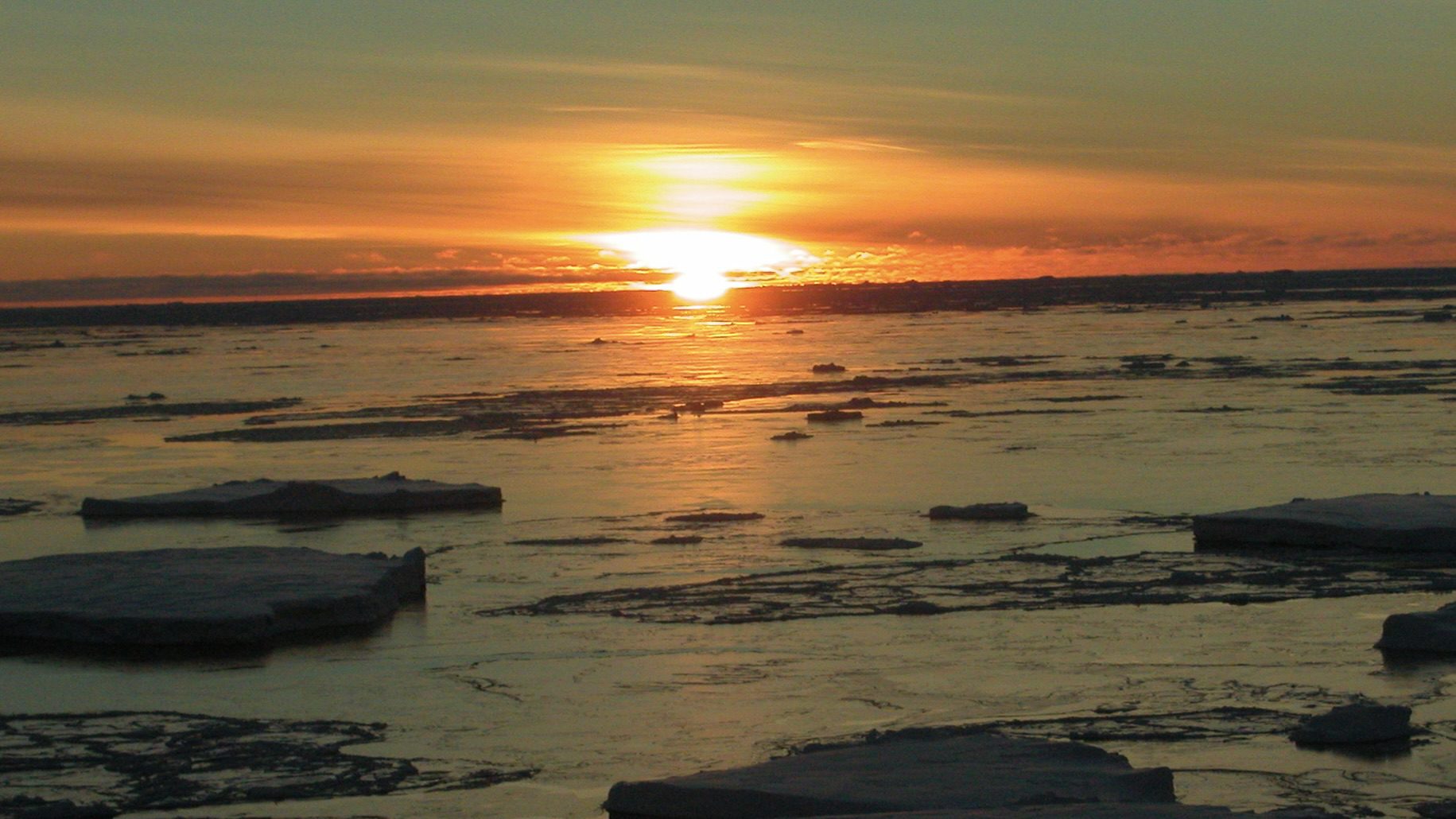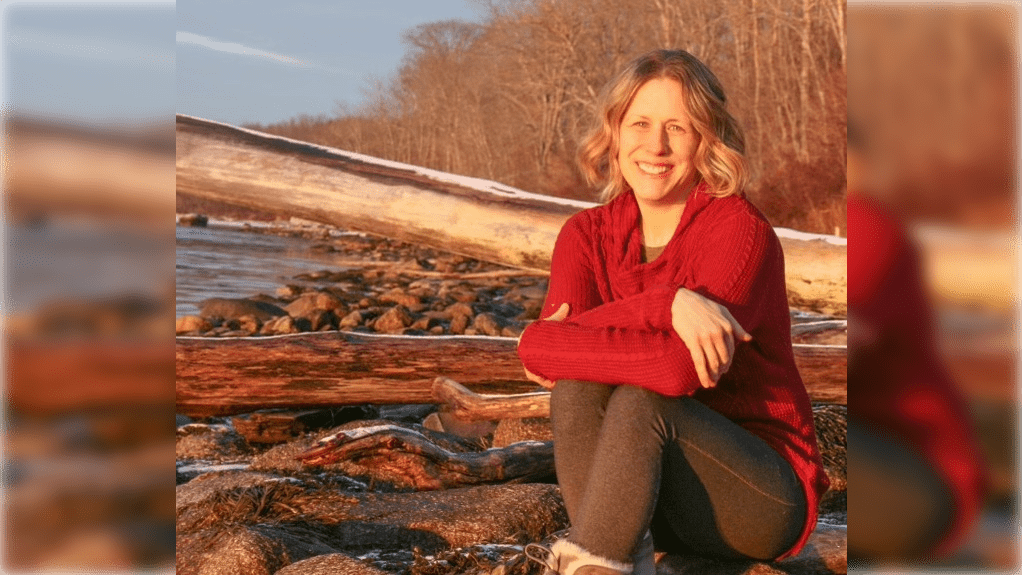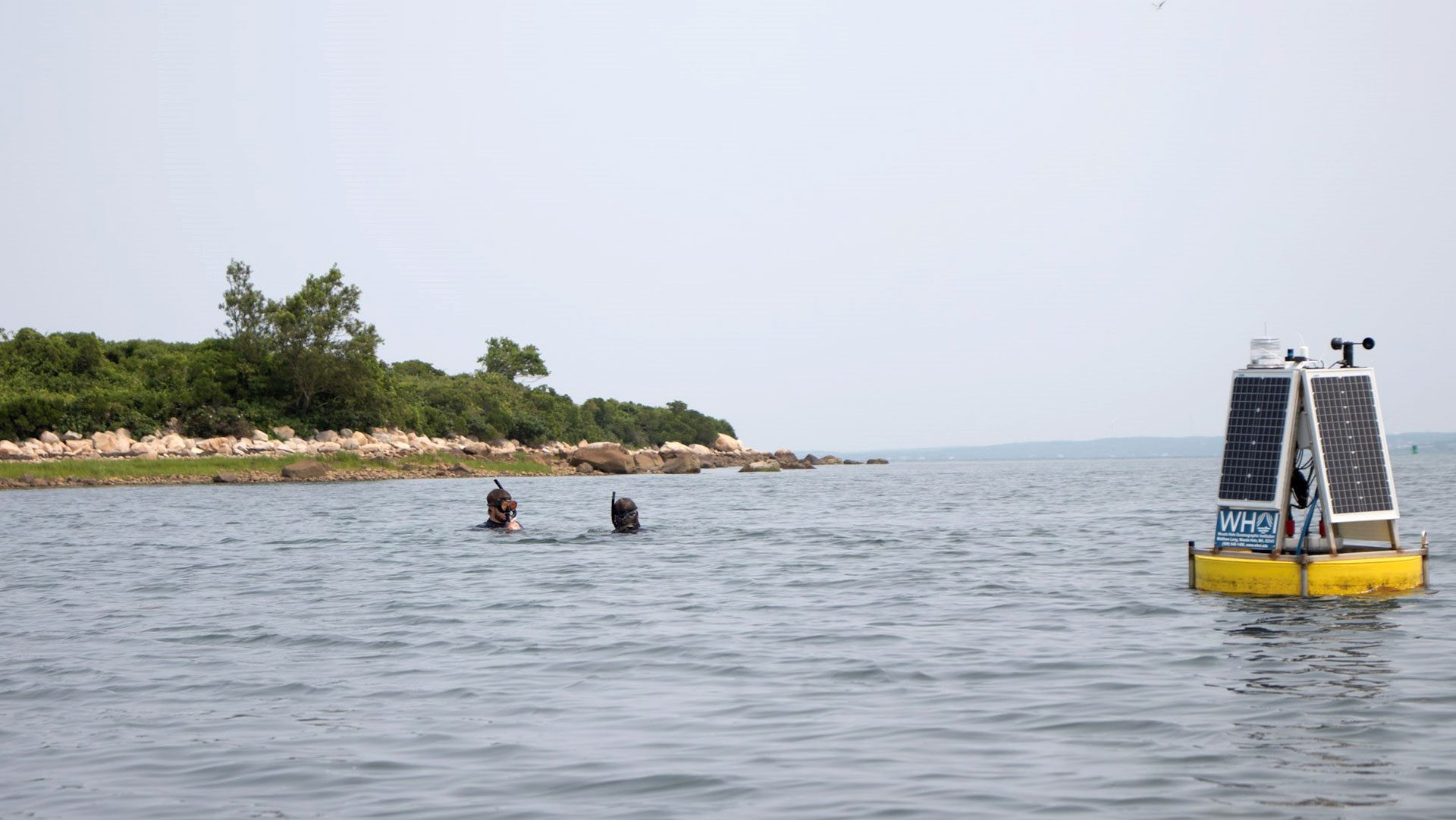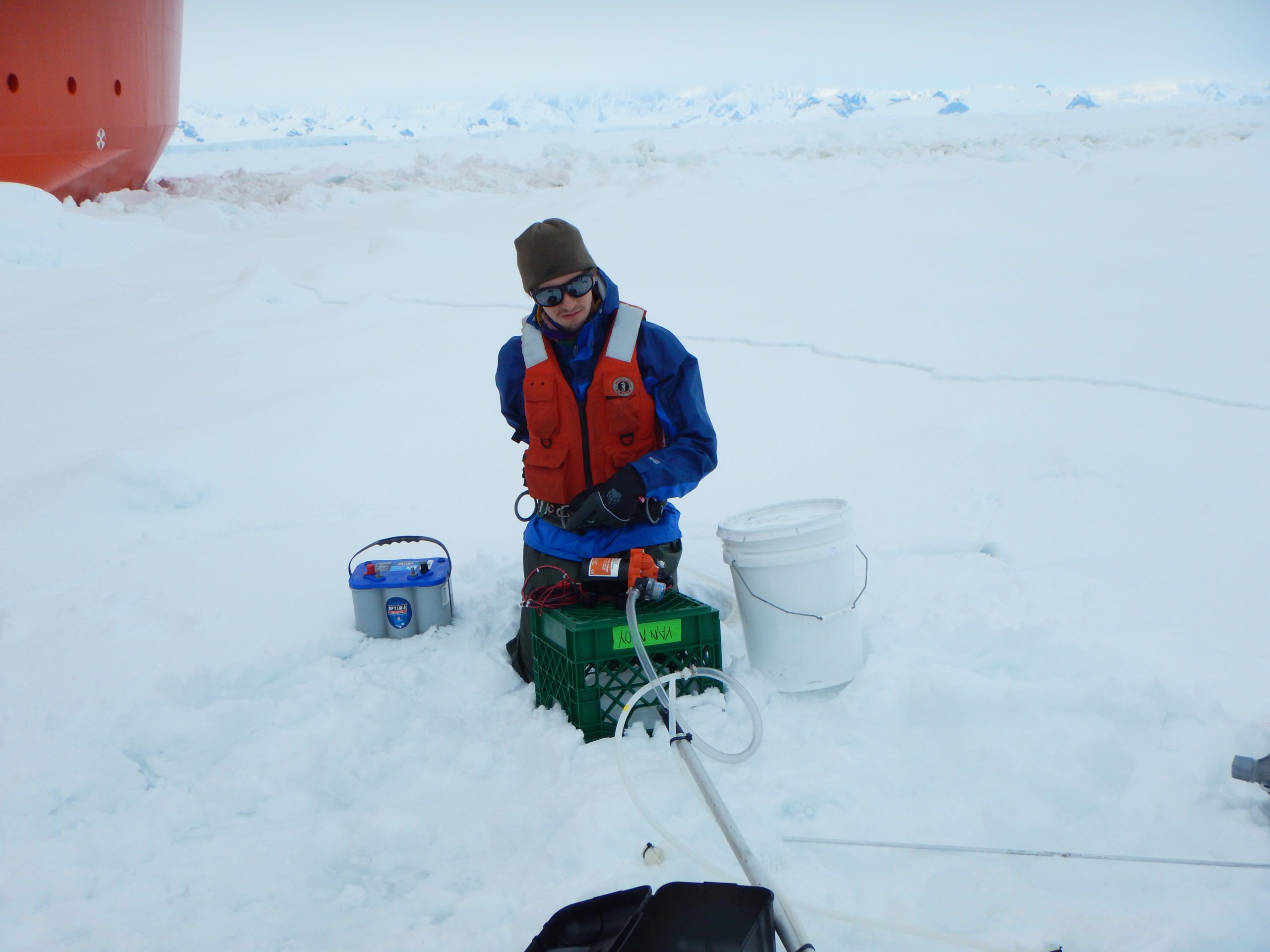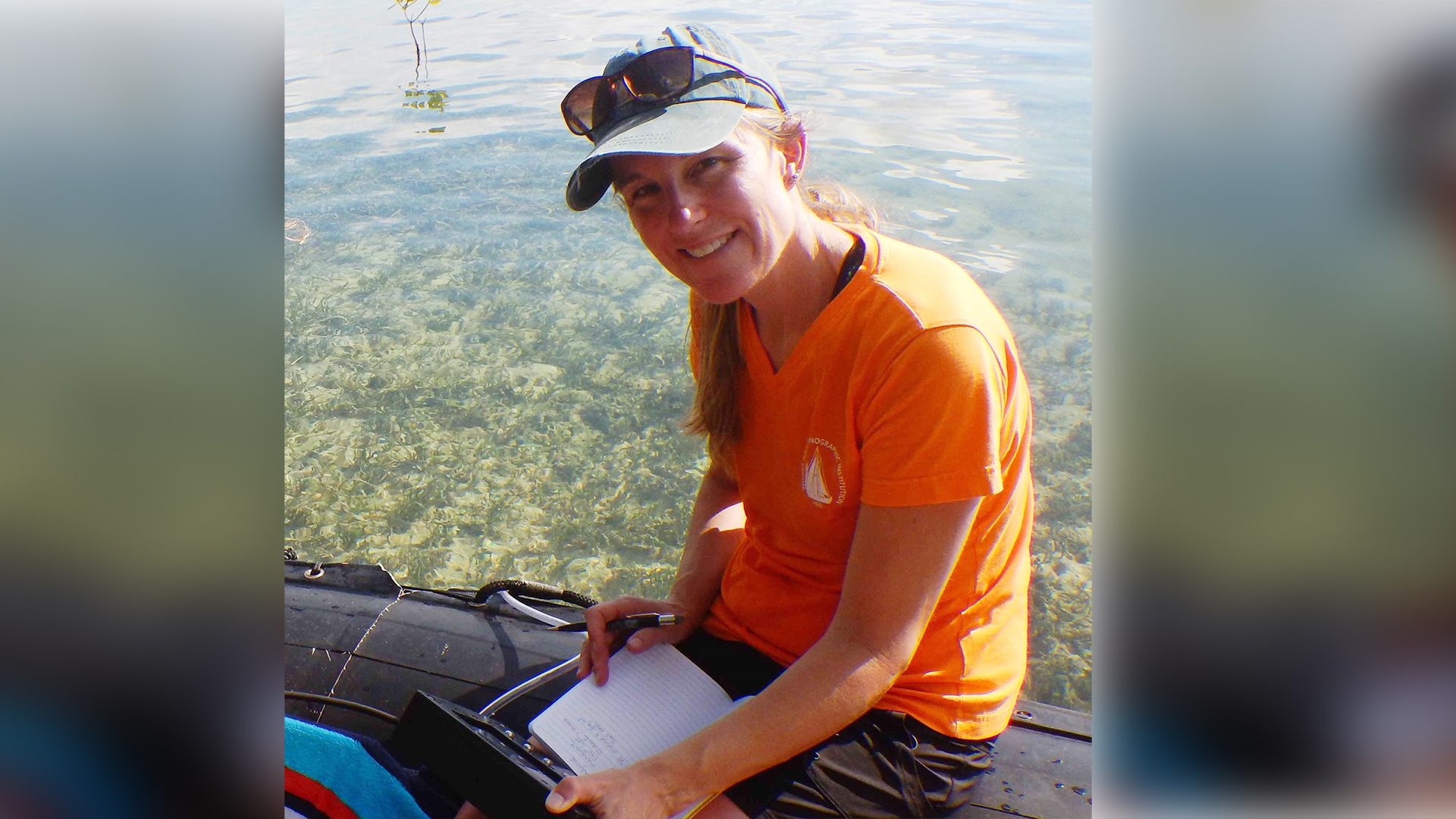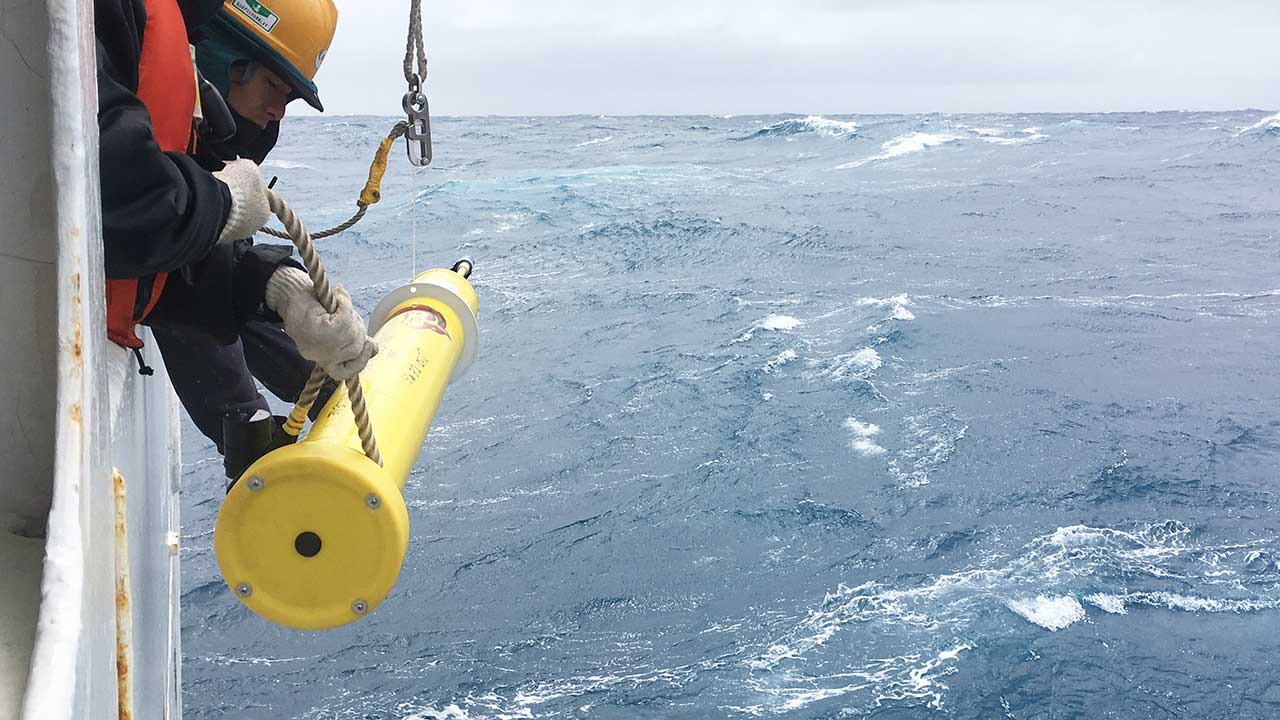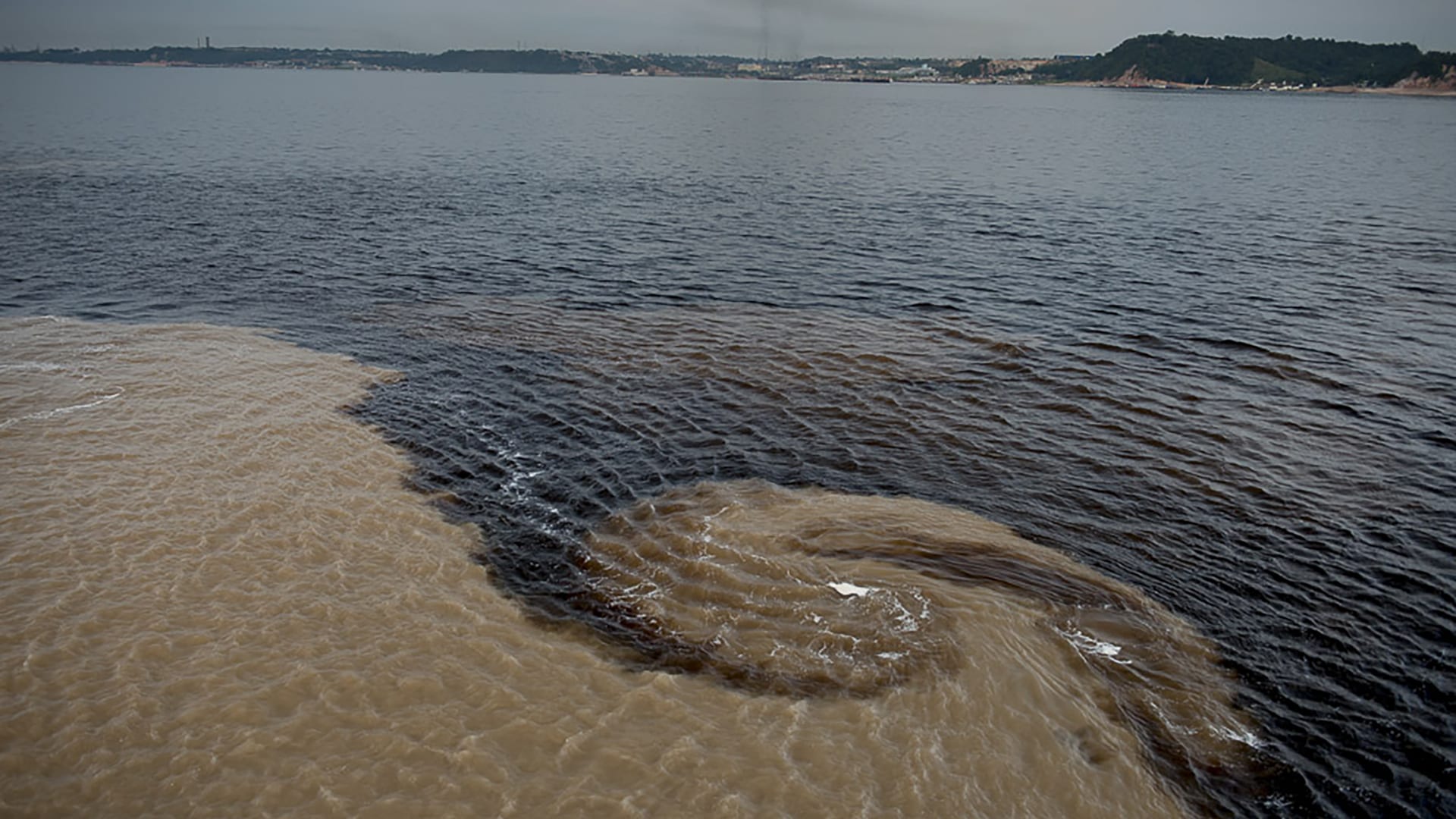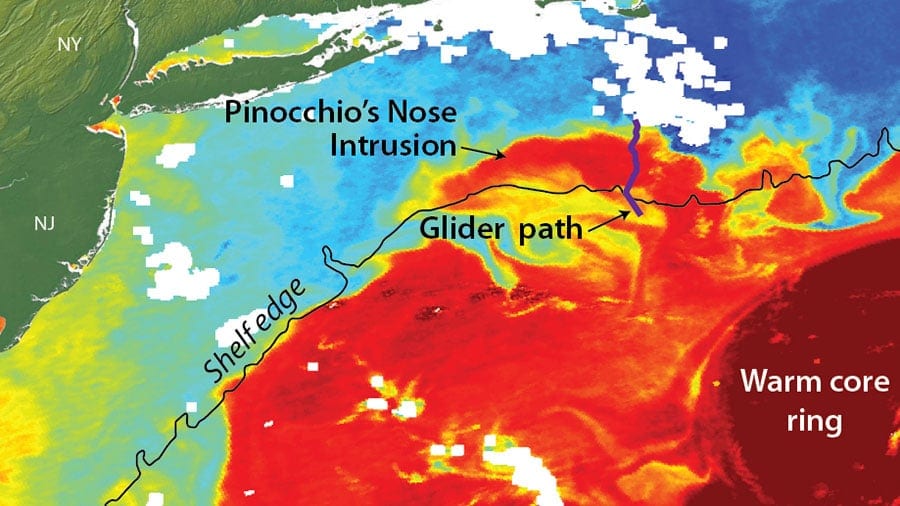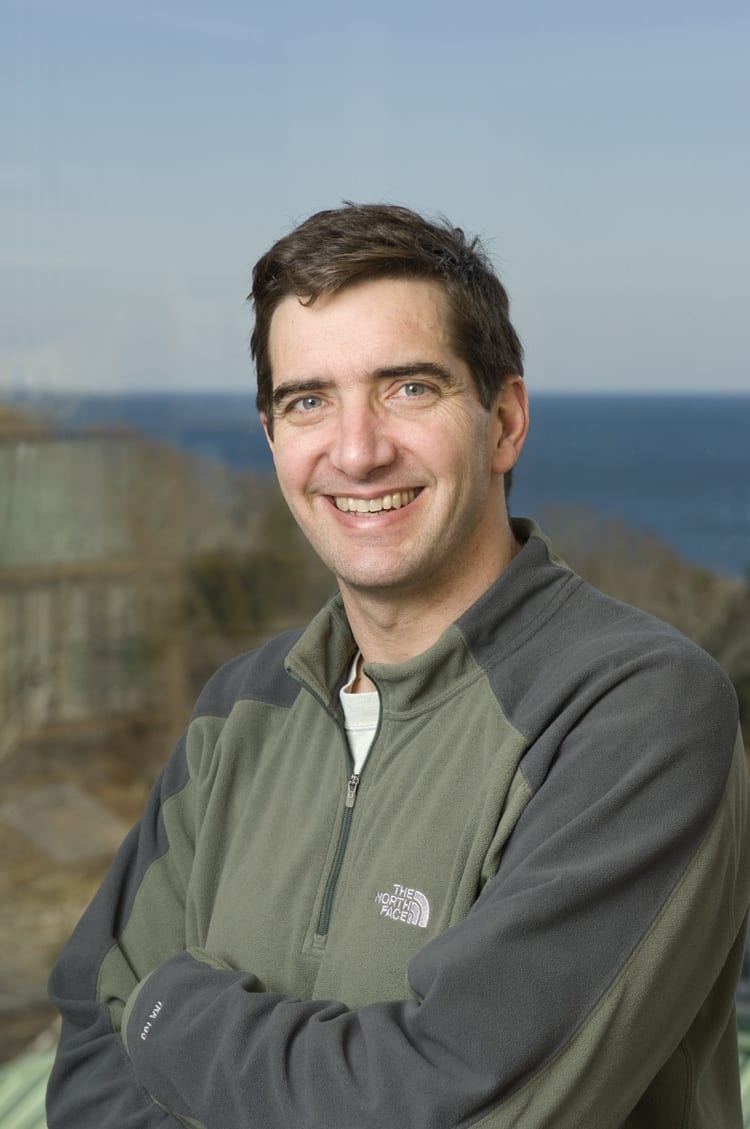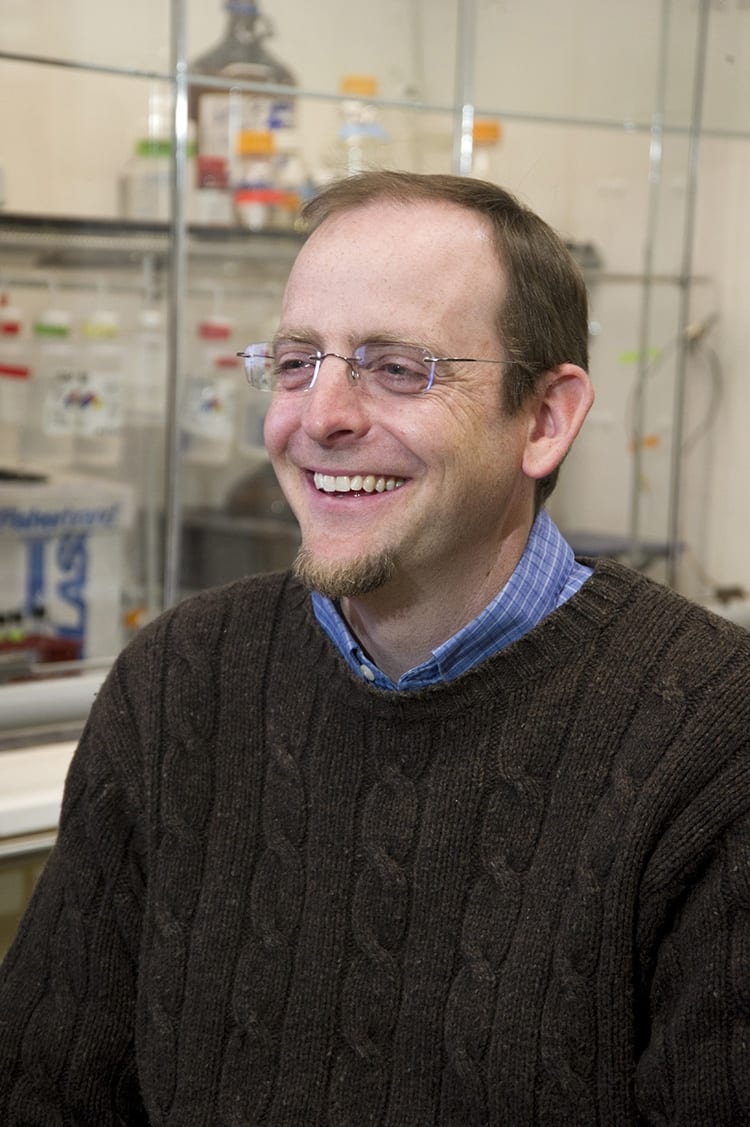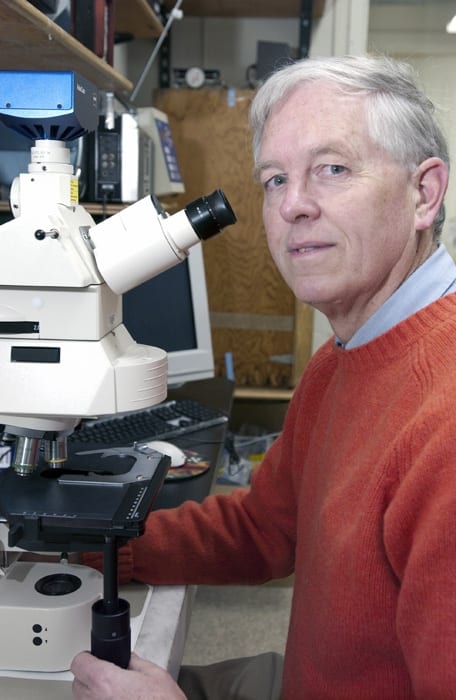News Releases
New Robot Speeds Sampling of Ocean’s Biogeochemistry and Health
The world’s first underwater vehicle designed specifically to collect both biological and chemical samples from the ocean water column successfully completed sea trials off the coast of New England on July 9, 2017. The new autonomous underwater vehicle (AUV), named Clio, will help scientists better understand the inner workings of the ocean.
Read MoreNew study quantifies sargassum’s multi-million dollar impact to U.S. coastal economies
WHOI led the study’s economic modeling and analysis, examining impacts across three sectors central to coastal economies: tourism, recreation, and fisheries.
Read MoreThe National Academy of Sciences selects WHOI’s Laura Motta as Kavli Fellow
Her research focuses on advancing our fundamental understanding of chemistry inspired by marine processes that challenge our current chemical knowledge.
Read MoreWHOI to Receive Funding For Ocean Margins Initiative in West Africa
New program at Schmidt Sciences will refine details of ocean carbon cycling and ecosystem resilience
Read MoreSpring 2024: Woods Hole Oceanographic Institution Elects New Trustees and Corporation Members
At Woods Hole Oceanographic Institution’s (WHOI’s) Spring Joint Meeting of the Board and Corporation today, Institution leaders elected three new Trustees and seven new Corporation Members.
Read MoreWHOI Physical Oceanographer publishes peer-reviewed book about the Indian Ocean
The Indian Ocean and Its Role in the Global Climate System takes a deep dive into warming trends and extreme weather events
Read MoreStudy says ice age could help predict oceans’ response to global warming
Woods Hole, MA – A team of scientists led by a Tulane University oceanographer and the Woods Hole Oceanographic Institution (WHOI) has found that deposits deep under the ocean floor…
Read MoreStudy Clearly Identifies Nutrients as a Driver of the Great Atlantic Sargassum Belt
Findings could lead to locating nutrient sources and providing management options
Read MoreWoods Hole Oceanographic Institution’s Heather Benway Receives AGU Honor
Heather Benway, a senior research specialist at the Woods Hole Oceanographic Institution (WHOI) is the recipient of the 2023 Ocean Science Award from the American Geological Union (AGU).
Read MoreExcess Nutrients Lead to Dramatic Ecosystem Changes in Cape Cod’s Waquoit Bay
The Bay Is a harbinger for estuaries worldwide, say researchers
Read MoreClimate change could lead to a dramatic temperature-linked decrease in essential omega-3 fatty acids
The effects of global climate change already are resulting in the loss of sea ice, accelerated sea level rise, and longer and more intense heat waves, among other threats. Now, the first-ever survey of planktonic lipids in the global ocean predicts a temperature-linked decrease in the production of essential omega-3 fatty acids, an important subset of lipid molecules.
Read MoreWHOI scientist elected as Fellow of the American Academy of Microbiology
Woods Hole Oceanographic Institution scientist elected as Fellow of the American Academy of Microbiology Colleen Hansel, associate scientist at WHOI, has been elected as a Fellow of the American Academy…
Read MoreNew multi-institutional grant will support a fleet of robotic floats
The National Science Foundation approved a $53 million grant to build a global network of chemical and biological sensors that will monitor ocean health.
Read MoreOrganic Carbon Hides in Sediments, Keeping Oxygen in Atmosphere
A new study from researchers at the Woods Hole Oceanographic Institution (WHOI) and Harvard University may help settle a long-standing question—how small amounts of organic carbon become locked away in…
Read MoreGulf Stream Ring Water Intrudes onto Continental Shelf Like “Pinocchio’s Nose”
Ocean robots installed off the coast of Massachusetts have helped scientists understand a previously unknown process by which warm Gulf Stream water and colder waters of the continental shelf exchange. The process occurs when offshore waters, originating in the tropics, intrude onto the Mid-Atlantic Bight shelf and meet the waters originating in the Arctic. This process can greatly affect shelf circulation, biogeochemistry and fisheries.
In 2006, scientists using satellite imagery observed an elongated body of warm water from a Gulf Stream warm-core ring intruding along the shelf edge, extending hundreds of miles from Massachusetts towards Cape Hatteras, NC.
“A lot of people were surprised by this,” said Weifeng ‘Gordon’ Zhang, associate scientist at Woods Hole Oceanographic Institution (WHOI), and lead author of the study published [today] in Geophysical Research Letters. “Normally, the Gulf Stream water, which is very warm and buoyant, doesn’t come in direct contact with the water on the continental shelf, which is much colder. There is a cascade of potential implications that need further study.”
Read More
Doney receives A.G. Huntsman Award for Excellence in Marine Science
WHOI Senior Scientist Scott Doney has been awarded the 2013 A.G. Huntsman Award for Excellence in Marine Science. He will receive the award later this year at the Bedford Institute…
Read MoreStudy explores complex physical oceanography in East China Sea
Just days before a team of researchers from Woods Hole Oceanographic Institution (WHOI) and National Taiwan University set out to conduct fieldwork in the East China Sea, Typhoon Morakot—one of…
Read MoreVan Mooy awarded fellowship at Southampton, U.K.
Woods Hole Oceanographic Institution (WHOI) biochemist Benjamin Van Mooy has been awarded one of two inaugural fellowships at the University of Southampton in England. The Diamond Jubilee International Visiting Fellowship…
Read MoreWHOI Research Projects Awarded $5.2 M to Support Marine Microbial Research
There are more microbes in a bucket of seawater than there are people on Earth. Despite their abundance, humans are only just beginning to fathom the complex role marine microbes…
Read MoreResearchers Highlight Growing Problem of Ocean Acidification
An international group of scientists, including researchers from the Woods Hole Oceanographic Institution, are working to improve communication about ocean acidification to help the public better understand the pressing global…
Read MoreHuman Impact Felt on Black Sea Long Before Industrial Era
When WHOI geologist Liviu Giosan first reconstructed the history of how the Danube River built its delta, he was presented with a puzzle. In the delta’s early stages of development,…
Read MoreWHOI Scientist Contributes to Nature Study on Ocean Health
WHOI Senior Scientist Scott Doney is one of several contributors to a new comprehensive index designed to assess the benefits to people of healthy oceans worldwide. The Index – being…
Read MoreWHOI’s John Waterbury receives NAS Gilbert Morgan Smith Medal
The National Academy of Sciences (NAS) has awarded John Waterbury, scientist emeritus in the Biology Department at the Woods Hole Oceanographic Institution (WHOI), the 2012 Gilbert Morgan Smith Medal. Waterbury…
Read MoreNSF Announces Major Awards for Biodiversity Research, WHOI Scientists Selected
A WHOI-led project is one of several major awards recently announced by the National Science Foundation’s (NSF) Dimensions in Biodiversity research program. The multi-disciplinary, international collaborative effort will advance our understanding of deep-sea hydrothermal vent microbial communities and their global impact.
Read More
